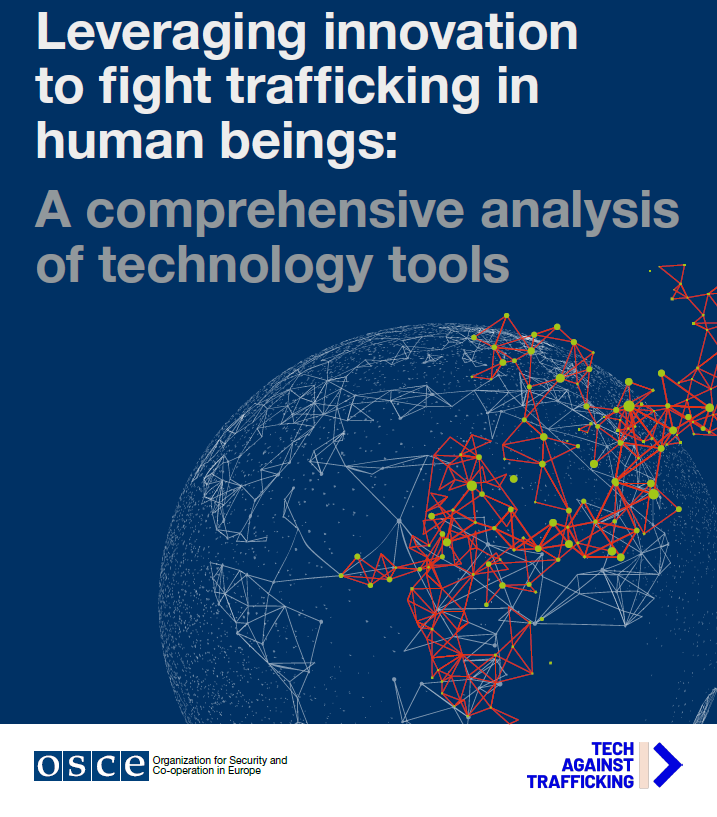The Organization for Security and Co-operation in Europe (OSCE) published a report titled ‘Leveraging innovation to fight trafficking in human beings: A comprehensive analyses of technology tools’.
The aim of the report was to carry out an analysis of the technology tools used to combat human trafficking in the OSCE region and beyond, with the goal to aid stakeholders in engaging with technology strategically, raising awareness about tools to help their work and inspiring them to pursue future innovation.
The report notes that human traffickers make use of technology to their advantage whilst the same cannot be said of those responsible for combating human trafficking. The report identified that although some resources are dedicated to investigating human trafficking as cybercrime, much less resources have been dedicated to exploring ways in which technology can be used in positive ways to combat it. The report also found there was little “awareness of existing technology initiatives in the anti-trafficking field, which increases the risk of fragmented and disjointed development and use of technology-based tools.”
Therefore, the report bridges the information gap in the on the use of technology to combat trafficking, whilst 305 technology tools and initiatives addressing trafficking in human beings were identified during the research for the report.
Please see the report for full recommendations to governments and organisations, as well as for the detailed analysis of how different stakeholders, including law enforcement, civil society, businesses and academia can take advantage of technology to combat human trafficking.
The Centre for the Study of Democracy has released a paper looking at human trafficking within the EU and how it can be best understood by placing the financial proceeds of human trafficking at the centre of analysis. The paper recognises that there are substantial gaps in knowledge surrounding finances in trafficking in human beings in the EU, and this in part stems from local level law enforcement lacking specific experience in dealing with organised crime finances.
The report is broken into five main sections, including:
- A general overview of the state of criminal money management (CMM), and CMM within the specific context of human trafficking.
- Contemporary trends and market structures for human trafficking in the EU countries studied.
- The role money has to play in human trafficking.
- The role and implications ICT has for human trafficking.
- Survey of the role money laundering investigations can have in tackling trafficking in human beings.
The report concludes by summarising the main findings from each section and making policy recommendations for future research and practice.
Access to the full paper can be found here.
Technology, communications, and data are being increasingly used for the purposes of combating human trafficking and modern slavery. A new paper by Liberty Shared considers the strengths and limitations of different data sources and methodologies of data collection, with a particular focus on ‘big data’ and ‘thick data’. It notes that the effective gathering and analysing of data has a vital role in understanding and tackling major societal issues such as modern slavery. The report also looks at partnerships that can combine with differing tools of data collection and communication to maximise the impact of different organisations with varied strengths and capabilities.
The report also makes note of the need for public-private sector collaborations, and explores how both sectors will stand to benefit greatly in their anti-trafficking and anti-slavery efforts from these partnerships.
The full paper can be found here.
